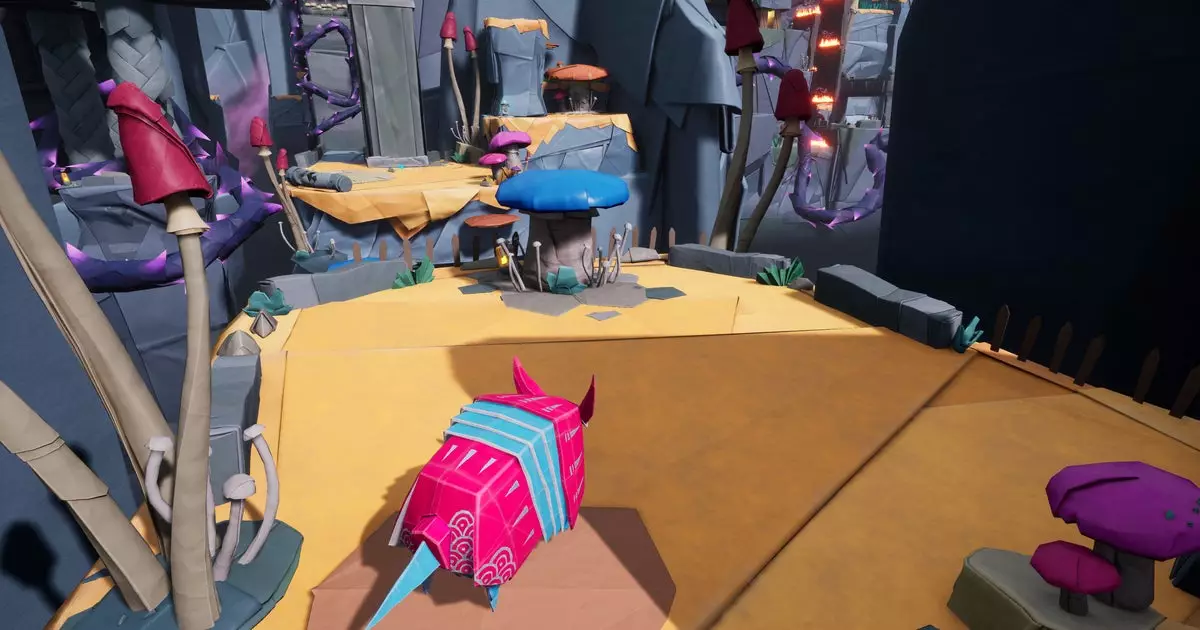In an era defined by rapid technological advancements, the arts have often found themselves caught between the worlds of the digital and the physical. *Hirogami*, an upcoming 3D action platformer, attempts to navigate this delicate balance by celebrating the ancient Japanese art of origami while simultaneously setting its narrative against a backdrop of digital battles. However, this ambitious premise invites deeper scrutiny about the contrasting values of paper-based artistry against the proliferation of digital media.
At the heart of *Hirogami* lies an intriguing paradox: the game claims to honor the fragile beauty of paper art while actively existing in the digital realm it seems to critique. As players step into the shoes (or rather, the sheets) of Hiro, a paper-based protagonist capable of various transformations, they are asked to confront a blight affecting this delicate world. Ironically, this raises the question of authenticity; can a digital creation genuinely celebrate a medium it aims to represent? If the creators of *Hirogami* are earnest in their homage to origami, why not produce the game using traditional, paper-based methods? This creative dissonance is emblematic of a broader tension that often characterizes modern art forms—where digital products frequently overshadow their analog counterparts.
The gameplay mechanics showcased in the trailer highlight a variety of origami-inspired transformations, such as becoming a paper plane or a frog. While these mechanics evoke a sense of playfulness, the deeper implications of the game’s premise remain unexplored. The notion of cleansing “mind-warped inhabitants” feels trite, reducing the rich cultural significance of origami to a mere vehicle for combat against digital threats. The narrative follows a familiar route of good versus evil without providing any substantial commentary on the dichotomy of the two worlds it seeks to unite. Rather than serving as a bridge between the realms of paper and pixels, *Hirogami* risks merely serving as another backdrop for mindless action.
Furthermore, the potential for a minigame that simulates the actual folding techniques of origami was conspicuously absent from the initial announcements. This missed opportunity could have significantly deepened the player’s connection to the art form it seeks to celebrate. Such a mechanic could have transformed *Hirogami* from a straightforward platformer into a meaningful homage to paper art, integrating interactive experiences that honor the meticulous craft involved in origami.
The paradox of *Hirogami* also allows for a broader discussion on the future of media consumption. With the rise of digital formats, many traditional forms—such as print media—are often labeled as obsolete. Yet, the very essence of these forms continues to evoke nostalgia and appreciation; the tangible connection that comes from physical media is irreplaceable. As the narrative suggests a battle against digital creatures, one cannot help but wonder if we are witnessing a transition from valuing art in its purest form to advocating for the convenience of digital representations.
Moreover, the game’s visual aesthetics can be recognized as vibrant and engaging—traits which evoke the delicate craftsmanship of origami, yet still fall short of encapsulating the spirit of what papel art represents. As *Hirogami* arrives to capture the imagination in 2025, it serves as a reminder of how we navigate these shifting paradigms. The game’s creators may intend to honor the fragility of paper art, but it is imperative for them to consider—can true respect be paid if the medium of its execution is essentially at odds with the subject matter?
While *Hirogami* attempts to be a love letter to the world of origami, it simultaneously stands as a representation of the ongoing struggle between digital and traditional forms of art. To succeed, the game must navigate this complex terrain with sincerity, giving players an experience that not only entertains but also fosters an appreciation of the craft it aims to emulate. Perhaps only then can *Hirogami* emerge as more than mere entertainment; it could transcend its digital confines and champion the elegance of paper art, ensuring it firmly remains relevant in today’s ever-evolving landscape of artistic expression.

